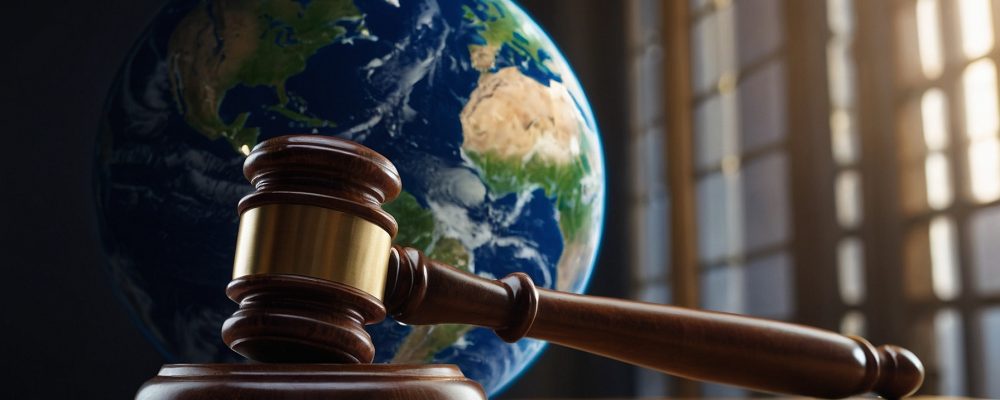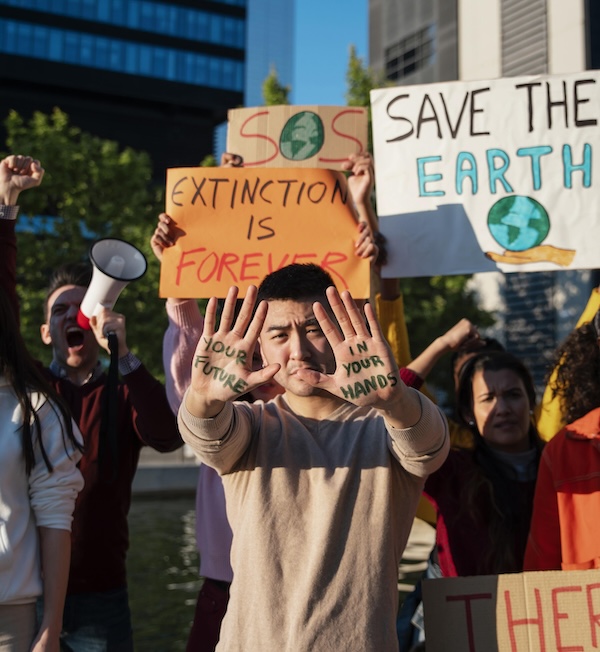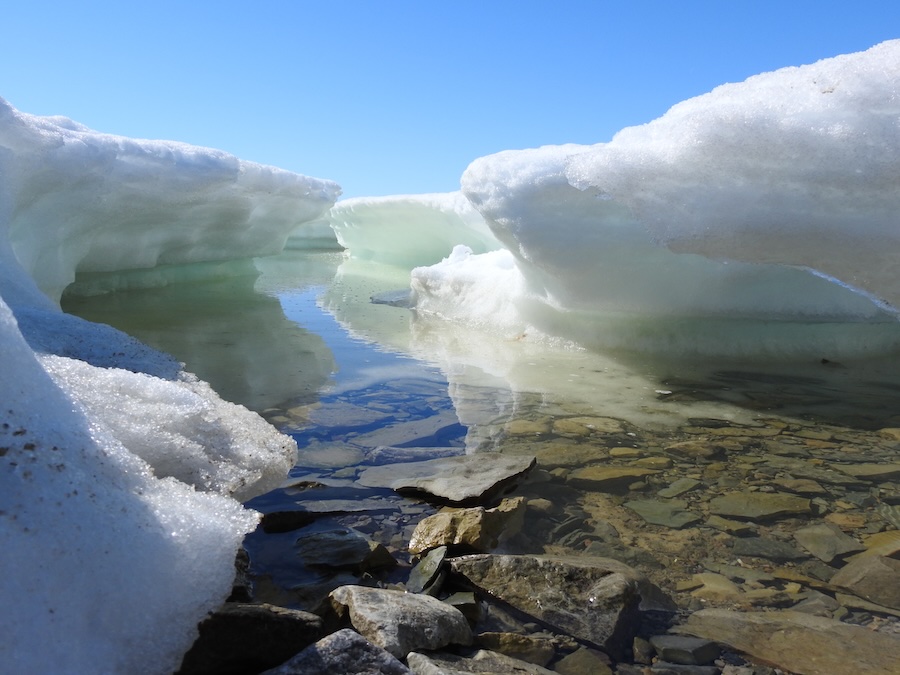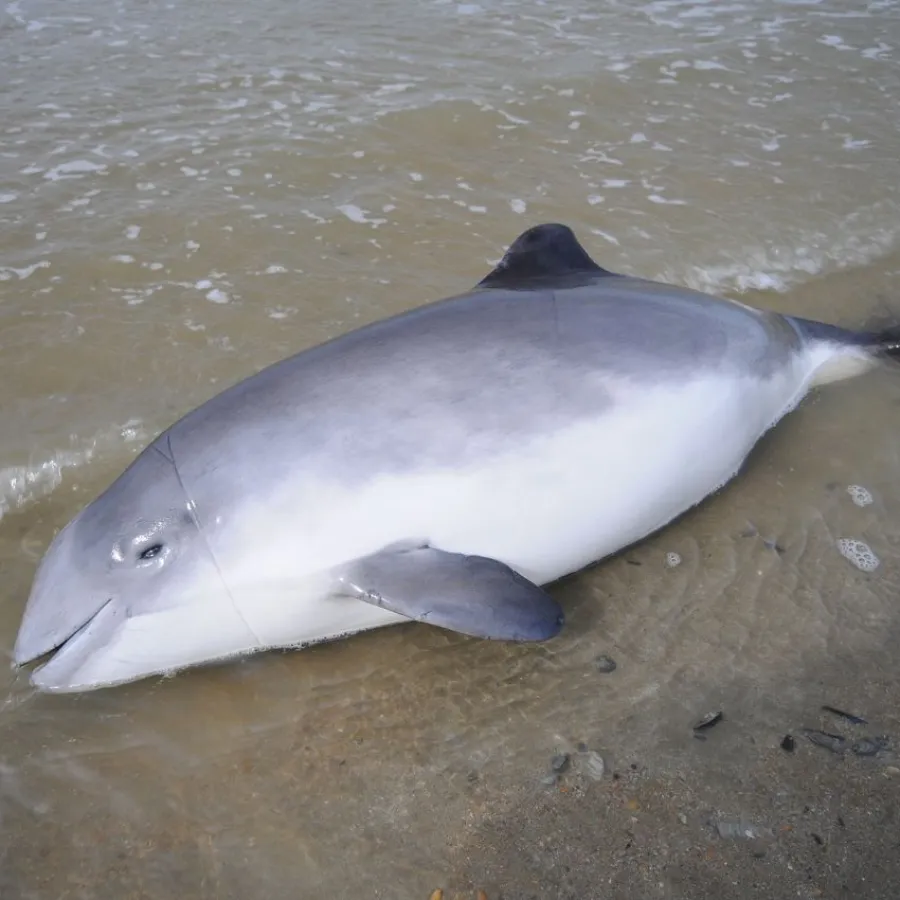Against inactivity
Climate protection lawsuits

Out of 10,000 people surveyed in the EU, two thirds are currently of the opinion that neither political institutions, authorities nor economic players are doing a good job with the energy transition.
There is concern at many levels as to whether humanity can still achieve the climate target of the Paris Agreement. In December 2015, 197 countries actually agreed on this. To date, 180 countries – including Germany – have ratified it, i.e. recognised it as legally binding. The agreement came into force on 4 November 2016 and pursues three goals:
- The states set themselves the global goal of limiting global warming to ‘well below’ 2 degrees Celsius compared to the pre-industrial age, with efforts to limit it to 1.5 degrees Celsius.
- The ability to adapt to climate change is to be strengthened and established as an equally important goal alongside the reduction of greenhouse gas emissions.
- In addition, the flow of financial resources is to be harmonised with the climate targets.
However, the consensus ends with the question of whether individual governments are doing enough to ensure that the target is actually achievable. One way to achieve this in Germany is the Klimaschutzgesetz (Climate Protection Act). Non-governmental organisations (NGOs) such as Deutsche Umwelthilfe (DUH) and Fridays for Future are sharply critical of it: ‘Politics and business in Germany are doing far too little to prevent the climate catastrophe.’

Example: German Climate Protection Act
A successful lawsuit before the Federal Constitutional Court in 2021 resulted in an improvement, as the court declared the existing Climate Protection Act to be partially unconstitutional. The judges confirmed that the federal government’s measures and targets for climate protection were not sufficient. The government must revise the Climate Protection Act as quickly as possible by 2022 and take much more energetic steps, especially in the years up to 2030. What exactly needs to be adapted was then returned to the politicians as a task. Fridays for Future commented on the new draft as follows: ‘The amendments to the KSG will make it practically impossible to achieve the annual climate targets by 2030 – even though they are already too weak to be compatible with the 1.5-degree target.’ DUH also recently achieved new successes: ‘In response to our lawsuit, the Berlin-Brandenburg Higher Administrative Court effectively sentenced the German government to additional, concrete climate protection measures amounting to over 200 million tonnes of CO2, as well as our further lawsuit on land use, forests and peatlands, which affects a further 42 million tonnes of CO2. And this in such a way that the traffic light government will not benefit from the simultaneous gutting of the Climate Protection Act,’ explains Federal Managing Director Jürgen Resch recently in an open letter.
Are courts therefore the best place to take action against political inaction on climate change?
One argument against this is that legal proceedings are slow and expensive. It takes years for them to be finalised, but the climate crisis requires urgent action at both local and international level.
In favour is the fact that legal proceedings are a means of democratic participation in forward-looking decisions. As a supporting additional pillar, lawsuits against governments or even companies may not bring about short-term change. Nor do they replace demonstrators on the streets, but they do increase the pressure for change: together with the ongoing work of non-governmental organisations, media-effective protest campaigns and scientifically sound information, this is also demonstrated by the growing number of climate lawsuits, which more than doubled between 2017 and 2022 alone. According to a report by the Sabine Centre for Climate Change Law, most of the lawsuits (around 1,500) were filed in the USA.
Companies are predominantly considered to be active in ways that are harmful to the climate and environment. They emit greenhouse gases and generate profits in the process. However, the damage caused is not compensated for, but is outsourced to society as a political problem. This is where legal action can create justice.

Melting glaciers in the Andes
Peruvian mountain guide leads the way
Almost ten years ago, Saúl Luciano Lliuya met a group of climate activists from the environmental organisation Germanwatch through his father. Saúl Luciano Lliuya is not only a farmer, but also works as a mountain guide in the Andes, leading tourists up the icy peaks year after year. He is now in his early 40s and grew up at a time when the environment in his home country was changing on an unprecedented scale. Avalanches and glacier floods are occurring more and more frequently. Flood modelling studies show that his house is in the acute danger zone if another large avalanche were to crash into Lake Palcacocha and cause its banks to overflow. Together with Germanwatch, the idea was born to ask one of the world’s biggest greenhouse gas emitters, the German energy giant RWE, to pay compensation for this climate change as well.
If the lawsuit is successful, it could set a global precedent for holding big polluters responsible for the effects of climate change, even on the other side of the world. The case has already had a huge impact. After German judges declared the case admissible in November 2017, RWE’s share value collapsed at the time. The requested sum of 20,000 US dollars is only a symbolic amount – RWE’s legal costs alone are likely to be far higher. However, when the judges suggested an out-of-court settlement at a hearing in 2017, the company’s lawyer rejected this on the grounds that ‘this is a precedent.’ This reflects a trend: international companies and their investors are realising the financial risks associated with climate disputes. The estimated costs of future climate-related lawsuits run into the billions.



